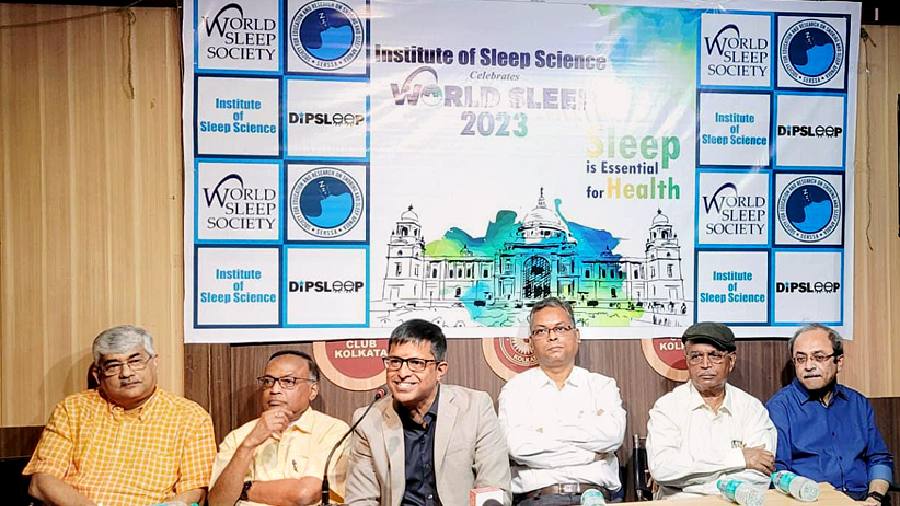Case 1: Sumit Roy (name changed), an 8-year-old boy living in Alipore, was taken to a paediatrician by his parents because of his snoring habits. The parents told the doctor that the boy had also been suffering from allergic rhinitis, a condition marked with swollen nose and excessive mucus, and asthma since he was 4. He also felt excessively sleepy during the daytime. Sleep studies showed the boy was suffering from obstructive sleep apnoea.
Case 2: The parents of a 2-year-old girl from Salt Lake took her to a paediatrician because the child snored and showed signs of restlessness while asleep. Sleep tests revealed the girl had “restless leg syndrome” and “profound and multiple learning disability”. Both conditions were linked to sleep deprivation.
A group of citybased physicians held a meeting at Kolkata Press Club on Thursday to create awareness on how snoring, various sleep-related disorders and even the potentially fatal obstructive sleep apnoea have become a problem among children, too.
The doctors warned that obstructive sleep apnoea (OSA) is a common disorder characterised by repetitive episodes of nocturnal breathing stoppage triggered by upper airway collapse, leading to a range of diseases and even death.
“Snoring, sleep deprivations and obstructive sleep apnoea cases have been definitely increasing within children in the city.... But it is also true that if interventions are made on time, this problem can be cured,” said Dipankar Datta, an ENT and sleep physician.
Pallab Chatterjee, a paediatrician, pointed out that one in four children suffer from some sort of sleep problem and daytime sleepiness is extremely prevalent.
Arup Haldar, a pulmonologist and sleep expert, said several factors together cause sleep disorders in children.
“Obesity because of lack of physical activity, allergy and oxidative stress because of rising air pollution, sleep deprivation triggered by study pressure and addiction to mobile phones are responsible for the surge of OSA among children. That apart, a lack of chewing habit that affects the expansion of the upper airways is also responsible,” said Haldar.
Datta and Haldar both explained that “snoring, choking, hyperactivity and obesity among children are red signals” that parents should identify immediately.
“Child’s ability to memorise daytime learning is finalised by his or her quality of sleep. Fragmented sleep should be taken seriously by parents or caregivers, as it can trigger several problems, including attention deficit disorder and hyperactivity,” said Gautam Ghosh, another paediatric doctor.
“The awareness is still quite low about sleep apnoea among adults, and almost non-existent among children, despite so many individuals potentially suffering from the disease, simply because the ailment remains undetected. Government should be more proactive with this highly treatable disease and insurance companies should also come forward,” said A.G. Ghoshal, a pulmonologist.
